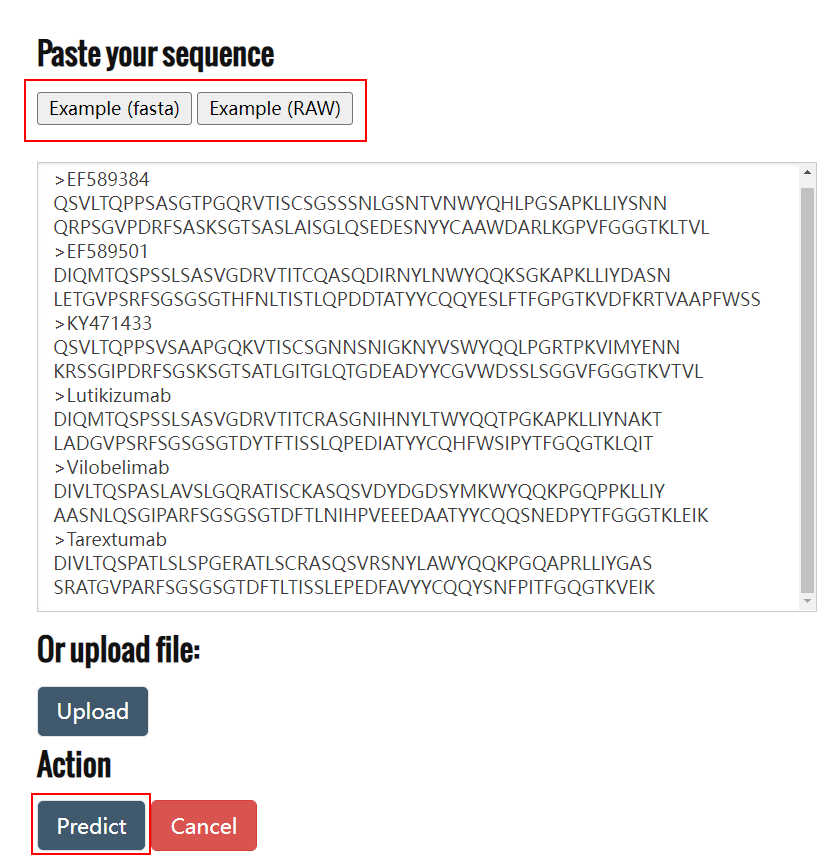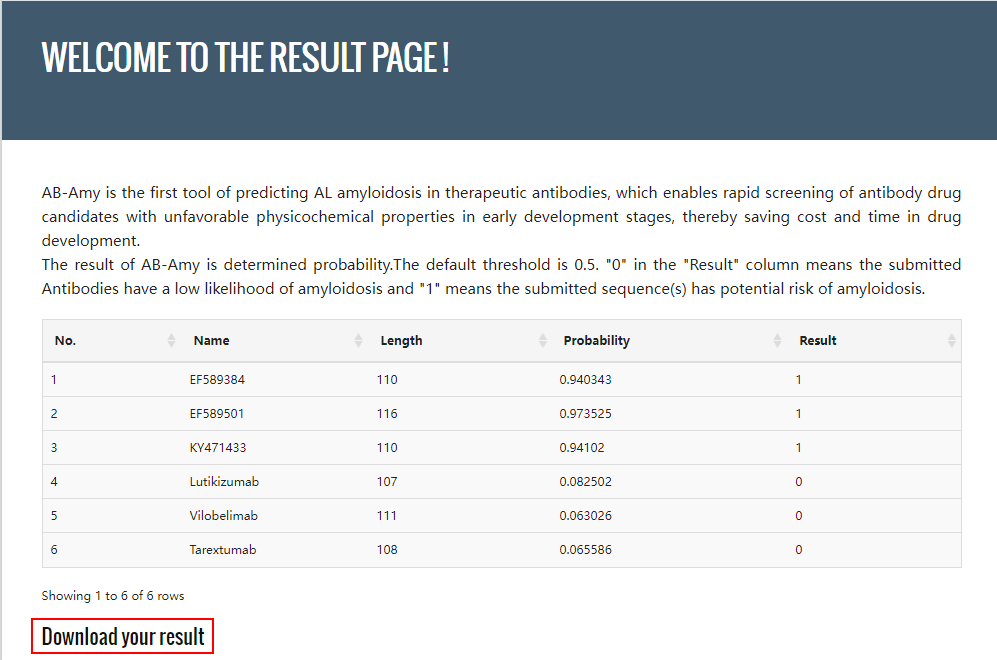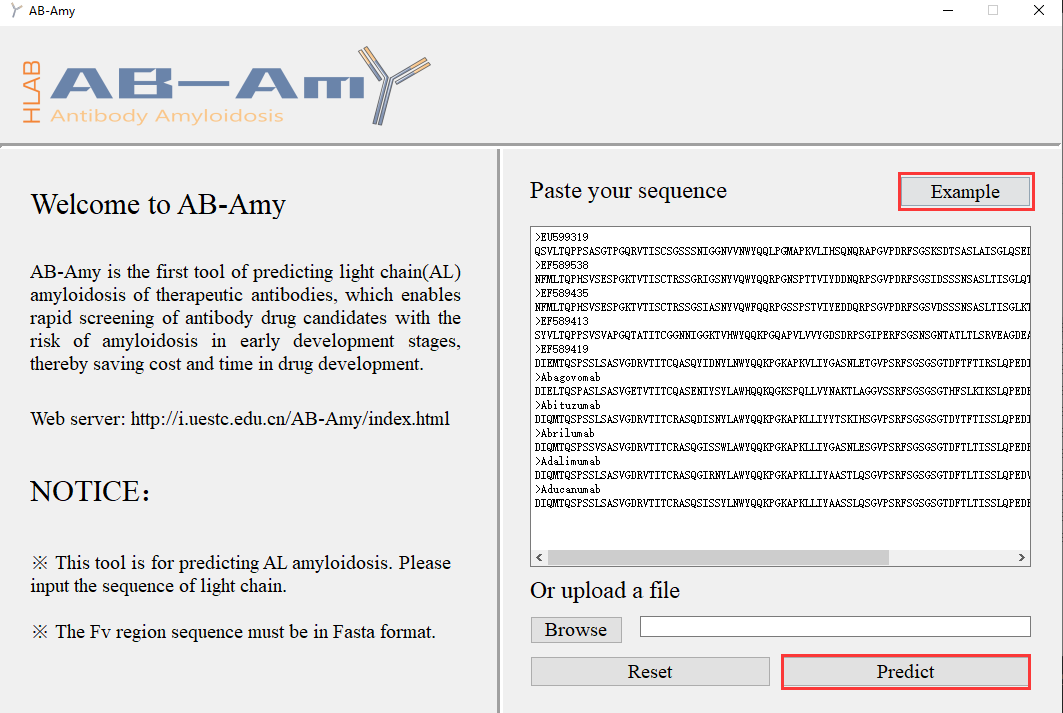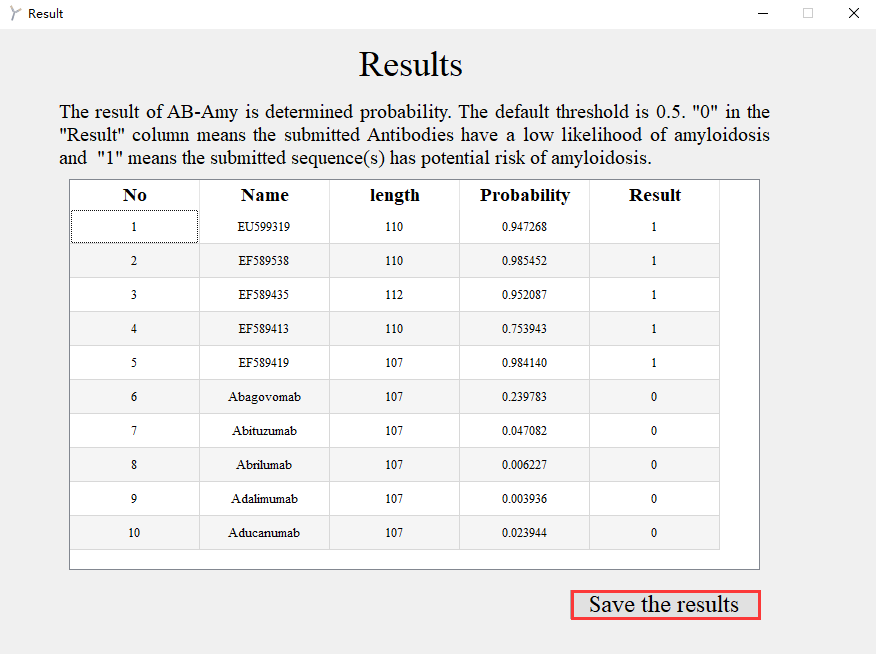Background
More than 100 antibodies have been approved as effective therapeutics. However, many therapeutic antibody candidates fail because of unfavourable physicochemical properties. Aggregation during expression, purification and storage has been a major challenge in antibody drug development. In addition, light chain amyloidosis can lead to serious health problems. Therefore, elimination of therapeutic antibody candidates with high risk of amyloidosis can not only save the time and cost of the later development period, but also can ensure the safety of antibody drugs. As experimental assays are time-consuming and laborious, tools for predicting amyloidogenic protein have been proposed. However, most of these tools are good at short peptides. The false positive rates are quite high when they are applied to longer sequences.
Here, we proposed a novel SVM-based model called AB-Amy. It can predict if a light chain is amyloidogenic using dipeptide composition information. According to the experiment result, AB-Amy achieved an accuracy of 90.60% in the training set through 5-fold cross validation. Its AUC reached 0.9651 on an independent test set, indicating the effectiveness and robustness of AB-Amy.
How does the AB-Amy work?
Web server guide
- In "Submit" page, you can paste the VL sequence of antibodies in the textarea or upload a file in Fasta or RAW format. Examples can be loaded by clicking the "Example(fasta)" or "Example(RAW)".
- Click "Predict" to submit your job.

Please wait several seconds and the results will be dispalyed in a table. You can click the "Download the results" to save your results"

Standalone tool guide
We provide graphical user interface versions for different systems. You can dowmload the executable file form "DOWNLOAD" page and unzip the file in any path. Click the "AB-Amy.exe" tp run the program. The interface style and usage of the GUI AB-Amy are consistent with that of the web server.
The "data" directory contains data internal to AB-Amy program and users should NEVER add, delete, move or edit any files in this directory.


- Number: the serial number of the query sequence;
- Name: the ID of the query sequence;
- Length: the full length of the query sequence;
- Probability: this column represents the probability of the risk of amyloidosis;the antibody will be predicted has high risk of amyloidosis if the probability is 0.5 or higher;
- Result: this column shows the prediction result.“1” in the “Result” column denotes that the submitted light chain exhibits a high risk of amyloidosis and should be excluded from the development pipeline.
If you find any bug or question in the AB-Amy suit, please let us know. Any other problems or questions, do not hesitate to contact Prof. Jian Huang (hj@uestc.edu.cn). We appreciate your feedback very much.
